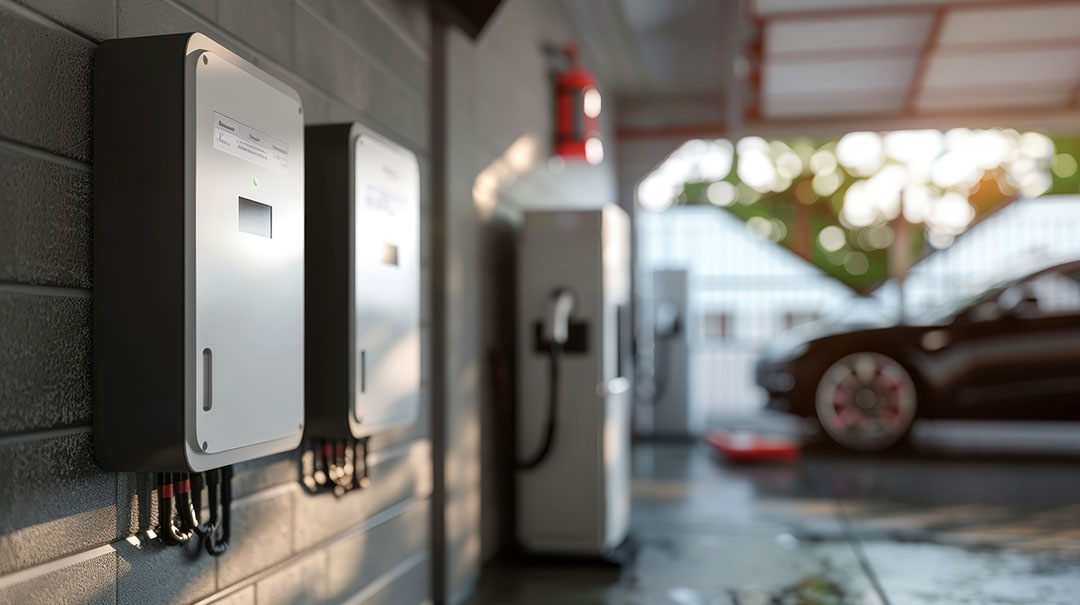As Oregon heads towards a zero-carbon energy grid, homeowners are going solar. According to the Solar Energy Industries Association, there is already enough solar installed in Oregon to power 169,875 homes!
But how can homeowners considering energy independence make sure they’re getting the most out of their solar investment? When researching solar, there are a lot of things to consider.
One of the central questions is whether you should choose grid-tied solar with net metering, or go off-grid with a battery bank. It’s not an easy question to know the answer to, and there are pros and cons either way.
Keep reading to learn more about the differences between solar with net metering versus solar with a battery bank.
Grid-Tied Solar and Net Metering
Across Oregon, homeowners are going solar with grid-tied systems. A grid-tied solar system is one that is still connected to your local electricity grid, and allows you to pull energy without a battery back-up for when you need more energy than your system can produce.
How? By using the process of net metering. With a grid tied system, when your system produces excess energy it’s sent back onto the grid. For every kilowatt hour of energy you send back, you receive a credit on your account with the utility company.
When it’s rainy, overnight, or during the odd Oregon snowstorm, you’re able to cover any electricity you pull from the grid with those credits. That way, your solar helps power your home year round, day and night.
In this way, net metering works like an on-grid battery bank for solar by accumulating your excess energy the same way a battery bank would.
But why is it called net metering? The name comes from the second meter called the net meter that’s connected to your home when you go solar. The net meter allows Oregonian homeowners to go solar and store their extra energy without needing the additional space and money for a battery bank.
In Oregon, net metering is guaranteed by law, which means that most utilities across the state have to allow some sort of access for homeowners with solar.
But what about homeowners who live in more rural areas of Oregon, or who are curious about one day being totally off-grid?
The Pros and Cons of Solar Batteries
Given the ease of going solar with net metering, why might a homeowner choose the additional investment required to install a battery bank? There are a few likely reasons.
If you’re planning on living totally off-grid, live in an area with regular and prolonged power outages, or live in a state that doesn’t offer net metering for solar like Oregon, then a battery bank may be the right fit for you. A battery bank can help you store your energy for access at home.
Although, a home with solar that’s grid-tied and has a generator back up works similarly. Unless you plan on living far away from any neighbors and truly off-grid, most homeowners will find a grid-tied system is the best investment given their energy needs and budget.
Let’s take a quick look at some key things to take into consideration when investing in a solar battery bank:
• Are You Ready For the Cost: the average cost of a battery bank is about $6,000, and homes with higher energy usages can expect to pay roughly half the cost of their solar energy system for a battery bank. The batteries also last between 5-15 years, and with the average solar panel lasting 25-30, you’re looking at replacing the entire battery bank at least once during the life of your solar energy system.
• Get Ready for Extra Maintenance: Depending on the type of battery bank you install, you should expect some degree of maintenance to ensure that your system is working correctly. For some battery types, that maintenance can only be done by a certified tech which means paying for that maintenance as well.
• Issues with Legality: Whether or not you want a battery bank in your home to go totally off-grid might be a moot point. In some states, building and zoning codes mean that you can’t have a home fully disconnected from the grid that delivers electricity to your neighborhood.
Should I Choose Net Metering or a Solar Battery?
For many homeowners, the real choice might be net metering alone, or net metering AND battery bank. But the question remains, how can you know if you want to invest in a battery bank?
If you’re looking for the most affordable choice, then you’ll want to go with grid-tied solar and net metering in Oregon. With this option, you get the perk of having access to excess energy your panels produce without the added cost of a battery system.
Deciding whether or not to invest in a battery bank comes down to whether you need one right now, or can wait. While the cost of solar batteries is falling, with the cost of installation and permitting, batteries still add thousands onto going solar. If you can hold off for just a few years, solar batteries are expected to reduce by nearly 70% of their cost in the near future.
If you can’t wait, you’re likely a homeowner who already lives off-grid, or experiencing serious power outages. Keep in mind that if cost is a major barrier, you can always consider a solar generator, which generally costs about half the price of a battery bank.
Between the high costs, and the ongoing maintenance, the average homeowner won’t see the full return on their investment into a solar battery bank right now.
Solar with Net Metering Saves!
Ready to wipe out your power bill with solar? Purelight’s local experts are here to help you own your power and help you save with grid-tied solar!
See if your roof qualifies for our $0 out of pocket program!
Take advantage of Purelight’s zero down program and install solar in Oregon for nothing out of pocket today.





